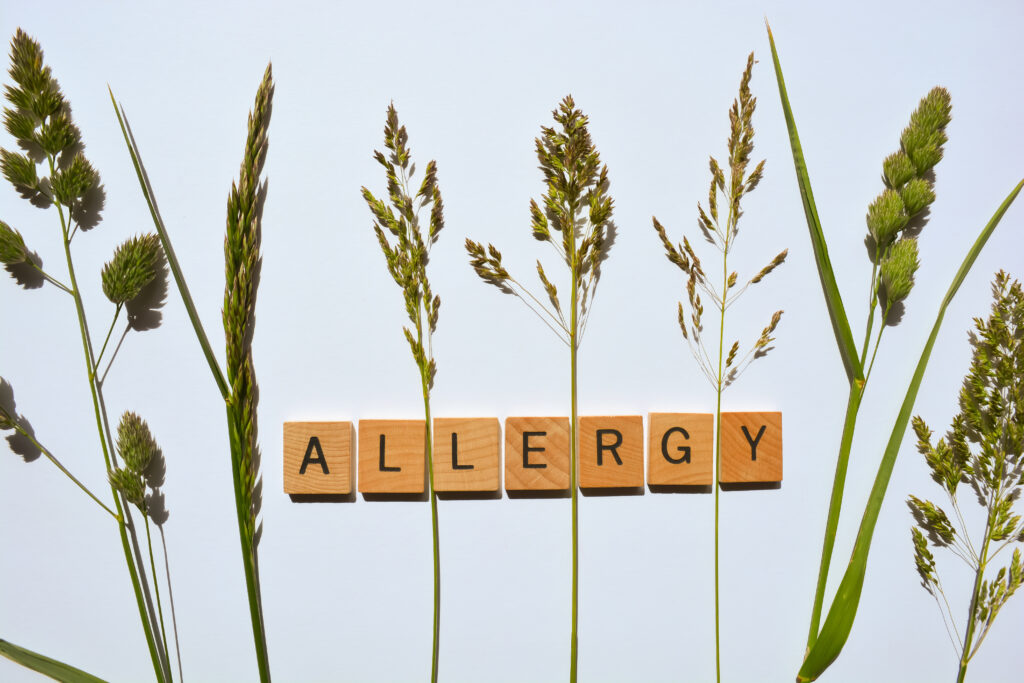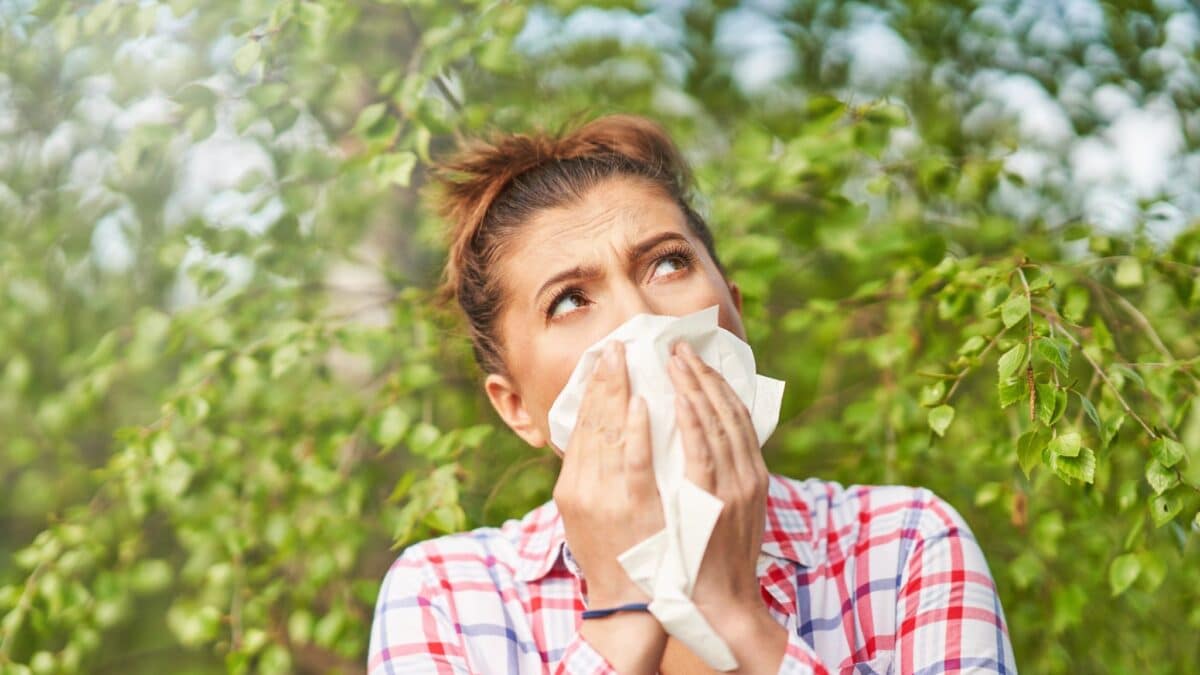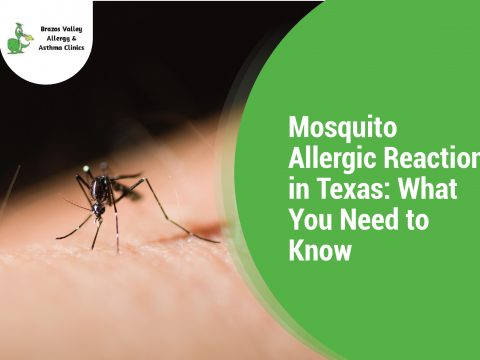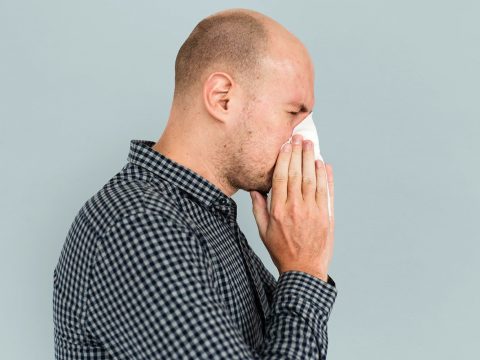- 979-485-9287
- office@bvallergy.com
-
 979-251-7804
979-251-7804
Allergy Season in Texas 2024: Everything You Need to Know

Why Is Eczema Flaring Up Now? Insights From an Allergist
February 9, 2024
Allergy Anxiety: How It Affects Quality of Life
March 13, 2024Are you ready to bid farewell to stuffy noses and itchy eyes? As allergy season in Texas looms on the horizon, it’s time to prepare for the onslaught of pollen and other allergens. From identifying triggers and their reactions to effective strategies for finding relief, here’s everything you need to know to overcome allergy season in Texas.
When Is Allergy Season in Texas?
Allergy season in the Sunshine State typically starts as early as late February and can extend through May. However, in recent years, due to shifting climate patterns, allergy season has been observed to rear its sneezy head even earlier.
Allergy season in Texas typically winds down by late spring or early summer, around June or July. As temperatures rise and humidity levels increase, pollen counts begin to decline. However, it’s essential to remain vigilant as specific allergens, such as mold spores, can persist throughout the year. Monitor local pollen counts and consult with your allergist to determine when it’s safe to ease off allergy medications.
Recognizing Allergy Symptoms
1. Sneezing
Sneezing is a common allergy symptom that occurs when the body reacts to allergens like pollen, mold, or pet dander. It helps expel irritants from the nasal passages, but frequent sneezing can be disruptive and uncomfortable.
2. Runny or Stuffy Nose
Allergens can trigger swelling in the nose, resulting in extra mucus and congestion. A runny or stuffy nose can make breathing difficult, interfering with daily activities.
3. Itchy, Watery Eyes
Allergic conjunctivitis, or eye allergies, can cause itching, redness, and excessive tearing. Rubbing the eyes worsens symptoms and potentially leads to eye infections.
4. Scratchy Throat
Postnasal drip, a common allergy symptom, irritates the throat, making it feel scratchy or sore.
5. Coughing
Allergens can trigger coughing as the body tries to expel irritants from the respiratory system. Persistent coughing may require medical attention to rule out underlying conditions like asthma or bronchitis.
6. Fatigue
Allergy symptoms, particularly nasal congestion and poor sleep quality, can lead to fatigue and daytime drowsiness. Managing allergies helps improve energy levels and overall well-being.
7. Headache
Sinus pressure and congestion caused by allergies may lead to headaches or facial pain. Over-the-counter pain relievers and nasal decongestants may provide relief for allergy-related headaches.
Read More: How to Treat Allergy Headaches
What Triggers Allergies in Texas?

What exactly is causing all this sniffing and sneezing? In Texas, pollen is one of the most common culprits behind allergic reactions. While the abundance of trees, grasses, and weeds add vibrance to life in the Lone Star State, it can also be a source of discomfort for individuals with allergies. The factors contributing to Texas allergy season include:
-
Pollen
- Texas pollen from trees, grasses, and weeds is a significant trigger for allergies in the area.
- Plants release pollen into the air as temperature rises, increasing allergy symptoms.
-
Mold Spores
- Humid conditions in Texas create a favorable environment for mold growth.
- Mold spores can exacerbate allergies, especially in areas with poor ventilation or water damage.
-
Airborne Allergens
- Additional airborne allergens, such as dust mites, pet fur, and cockroach waste, can also cause allergic reactions in Texas.
- These allergens linger indoors and outdoors, contributing to year-round allergy symptoms for many Texans.
-
Environmental Factors
- Pollution, smoke, and strong odors can irritate the respiratory system and worsen allergy symptoms.
- Texas’s diverse landscape and climate variations can also influence the types and severity of allergies experienced by residents.
Understanding these common allergy triggers helps Texans avoid exposure and better manage their allergies, minimizing discomfort during allergy season.
How Long Does Allergy Season Last in Texas?
Now that we’ve marked the start of allergy season on our calendars, another question arises: When does the allergy season end? For Texans, relief is in sight as allergy season typically starts to ease off from late April to early May. So, if you’re counting down the days until you can breathe freely again, hang in there!
Finding Relief through the Best Allergist in Texas

Pharmacy, advice and prescription with black woman and blowing nose for medicine, sick and disease
When your allergies hit hard, seeking professional help makes a world of difference in your quest for relief. Luckily, Texas is home to some of the finest allergists in the country. From Houston to Dallas, allergy specialists across the state offer expert diagnosis and treatment options tailored to your needs.
In your search for the best allergist in Texas, consider factors such as reputation, expertise, and patient reviews. Here at Brazos Valley Allergy & Asthma Clinic, our team is dedicated to guiding you through your journey toward an allergy-free life. With personalized prevention and treatment options, you’ll have the most effective advice and tools to tackle allergy season confidently.
Read More: Your Guide to Selecting the Best Texas Allergy Specialist
Tips for Allergy Relief and Treatment in Texas
Effective treatment strategies are essential in the battle against allergies. Whether you’re dealing with nasal congestion or itchy eyes, there are best practices known to alleviate allergy symptoms.
Here are some tried-and-true tips for finding relief during allergy season in Texas:
- Close your windows when pollen levels are high to stop pollen from entering your house.
- Utilize air purifiers equipped with HEPA filters to eliminate allergens from the air.
- Clean and vacuum your home frequently to get rid of dust and mold.
- Wear a pollen mask outdoors, especially on days with high pollen counts.
- After being outdoors, shower and change your clothes to remove pollen from your body.
- For symptom relief, consider allergy medications such as antihistamines, decongestants, or nasal corticosteroids.
- Consult with the best allergist in Texas at Brazos Valley Allergy & Asthma Clinic for personalized allergy treatment and management strategies.
Conquering Allergy Season in Texas
Dealing with allergies in Texas can be tricky, but with the correct information and tactics, you can reduce the impact of allergies on your daily routine. By understanding what causes allergies, when they occur, and knowing their symptoms, you can actively take measures to effectively control and manage your condition. Don’t let allergies hold you back from enjoying everything Texas offers.
Get personalized allergy relief with the best allergist in Texas under Brazos Valley Allergy & Asthma Clinic and reclaim your comfort and well-being. Contact us at 979-485-9287 or click the “Book an Appointment” button to schedule an appointment.




